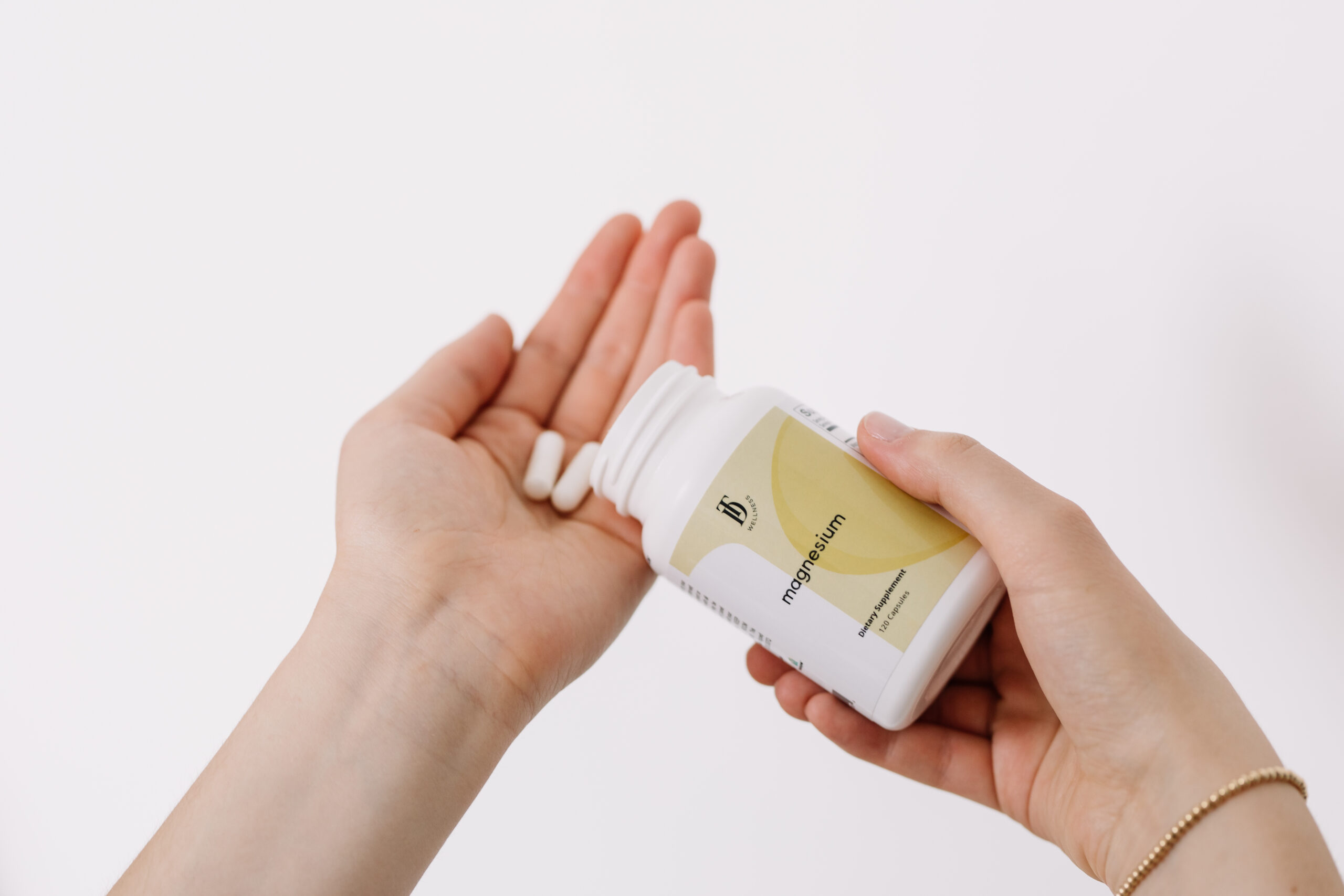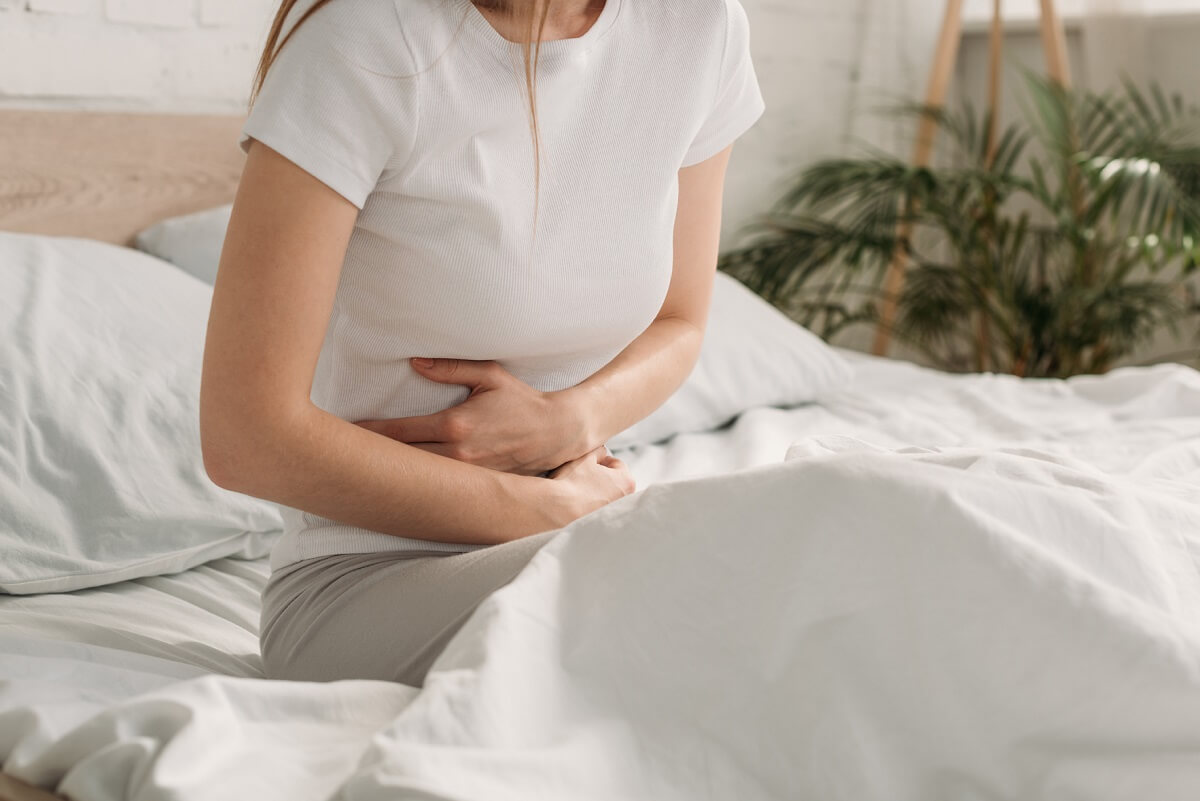All About Gut Health: Master Roundup of Articles, Symptoms, and Easy Actions to Improve Your Gut Health

As a functional medicine nurse practitioner and gut health expert with years of clinical experience working with clients in that area, I understand the frustration and feelings of impossibility when it comes to hoping for better health.
During my health journey, I discovered the massive improvement in overall health that can be made when gut health is addressed at the foundational level.
Let’s dive into this master roundup of information and resources on all things gut health.
Signs and Symptoms Your Gut Needs Help:
How do you know your gut needs some attention? Your body will tell you by its symptoms!
However, you might be surprised to find that many unwanted symptoms rooted in poor gut health actually appear unrelated to the gut at first glance.
For example, did you know that skin issues such as hives and eczema are likely caused by sub-optimal gut health? This can also be the case with joint pain, allergies, and even fungal infections.
Here are some common signs and symptoms that your gut health needs care:
- Skin problems (acne, eczema, hives, dermatitis, psoriasis, rosacea)
- Digestive issues (SIBO, IBS, constipation, diarrhea, gas, bloating)
- Joint pain
- Hormonal imbalance
- Food sensitivities
- Fatigue
- Mental disorders (anxiety, ADHD, depression)
- Sleep disorders
- Autoimmune conditions
- Fungal and/or yeast infections
- Brain fog
- Chronic inflammatory disease
- Nutrient deficiencies
- Cravings
8 Ways to Improve Your Gut Health:
By now you might be finding that your gut health isn’t optimal. I want to walk you through some actionable steps to take when restoring gut health at the most basic level.
1. Remove Irritants from the Diet
The first thing I advise when beginning a gut-healing journey is to cut out irritating foods to the gut. Everyone could benefit from ditching:
- Highly refined vegetable and seed oils, such as canola oil and soybean oil
- Added sugars
- Artificial sugars, such as sucralose and aspartame
- Highly-processed packaged foods
In addition, foods to which many people are commonly sensitive and may want to consider eliminating during a healing journey are:
- Gluten
- Dairy
- Soy
- Eggs
A food sensitivity test will indicate which foods are causing a sensitivity reaction and should be cut from the diet during the healing process. The goal would be to cut these out of the diet during healing, but eventually add them back in. You can access the exact food sensitivity test I recommend and a 1:1 consult with a trained functional medicine provider through TDW Community.
For more on autoimmunity, gluten, and whether you should ditch it from your diet, read this from the blog: Hashimoto’s and the Gluten Connection: Should You Ditch Gluten?
2. Eat & Supplement for Gut Health
Now that we’ve addressed what should be removed from the diet, let’s talk about what we should be sure to include in the diet. Because food truly is medicine!
As a rule of thumb, consume as many different fresh fruits and vegetables as you can! The key to a strong, diverse microbiome is to eat a diverse array of different foods!
In addition, healthy fats, clean proteins, and complex + whole carbohydrates should make up the majority of your diet.
My top gut-healing foods include:
- Bone broth protein
- Bone broth (Use code TAYLORDUKESWELLNESS)
- Fermented foods (kimchi, sauerkraut, coconut yogurt
- Prebiotic foods (onions, leek, garlic, bananas, artichoke)
- Coconut products
- Ginger
- Dandelion greens and bitter greens
Diet can’t be outdone, but it can also be worthwhile to supplement. My top gut-beneficial supplements include:
- GI Immune Support: A dairy-free alternative to colostrum that strengthens the gut barrier, helps boost the immune system, eliminates pathogens/toxins, and more.
- Probiotic: Includes a carefully assembled cast of good bacteria to maintain a healthy gut and support digestion.
- Prebiotic: Non-fiber “feed” for feeding and diversifying the good gut bacteria without the bloat and gas that often comes with fiber.
- Gut Support: Especially ideal for those with leaky gut or food sensitivities, it strengthens the gut lining while decreasing gut inflammation.
- Saccharomyces Boulardii: Promotes beneficial gut bacteria while boosting overall gut and immune health.
To read more about some of these and their healing properties, check out these articles from the archives:
- Surprising Benefits of Bone Broth for Gut Health
- You’ve Heard of Probiotics, But What About Prebiotics
3. Sleep
I know what you might be thinking – what’s sleep got to do with my gut?! The answer is, a lot!
During sleep, our body enters into its most restorative state and does its deepest detoxification. Research studies have shown that more optimal sleep actually strengthens our gut microbiome. Lack of sleep, on the other hand, does the opposite. was negatively associated.
Here are a few tips to improve your quality of sleep:
- No screens 1-2 hours before bed
- Wear blue light-blocking glasses in the evening
- Aim to go to bed and wake up around the same time every day
- Get natural sunlight to the eyes during sunrise and sunset hours
- Take a magnesium bath before bed
- Supplement with magnesium (I like to take 1-2 hours before bed for the best sleep!)
4. Reduce Stress
Stress reduction is key to improving gut health. Stress can actually reshape the gut microbiome through stress hormones, inflammation, and autonomic alterations. With such negative effects on the gut, it’s important to get serious about healthily managing stress.
Some of my favorite ways to downregulate stress and all of its negative effects are:
- Prayer, meditation, journaling
- Counseling
- Deep breathing
- Getting outside
- Gentle movement
- Magnesium bath or sauna
I can’t understate how important minimizing stress can be in your healing journey. When our nervous system is in a “fight or flight” mode, it can be challenging to fully heal. This is why we did a deep dive on supporting the nervous system and managing stress for TDW Community. Members can access these exclusive resources any time in the TDW Community digital wellness library.
5. Remove Environmental Toxins
Environmental toxins are hugely disruptive to our health in more ways than one. Whether it is to heal your gut or balance your hormones, removing toxins from the environment is key.
Toxins are likely found in your garage (paint, pesticides, fertilizers, weed killer), your bathroom cabinet (personal care products, skincare, makeup, bathing products), your laundry room (cleaning products and solutions, detergents, fabric softeners, dryer sheets) and even on your built-in shelves or walls (candles, plug-ins, air fresheners).
You can choose to go cold turkey and massively clean out the toxins from your home, or you can gradually switch over to non-toxic products as you run out of conventional and toxin-laden alternatives.
The important thing is to begin to make the change to non-toxic products as much as you can in as many areas of your home as you can.
I have rounded up a list of my trusted non-toxic products in this free guide – everything from cleaning to food to personal care products and more.
6. Be Mindful of Medicines
From NSAIDS to antibiotics to prescription drugs to birth control, medicines can actually wreak havoc on your microbiome. Steroids and antacids could be included in the list as well.
Many of these meds are known microbiome disruptors. They can contribute to conditions such as leaky gut, decreased microbiome diversity, and IBS. Note, TDW Inflammation Support is a powerful and effective alternative to NSAIDS in reducing pain, swelling, and inflammation.
It’s important to take a powerful Gut Support supplement and feed your gut bacteria plenty of probiotic-rich foods if you’re taking any of these medicines. Furthermore, any medication – over-the-counter or prescription – should be taken in full awareness of its side effects.
Some medicines are life-saving and necessary, but consider working with a provider to wean off any unnecessary medications you may be taking.
Here are a few articles from the blog on antibiotics, NSAIDS, and birth control:
- How to Heal the Gut After Antibiotics
- Skip the NSAIDS and Combat Your Pain and Inflammation with Natural Alternatives
- Is It Time to Say Goodbye to the Pill?
7. Get Basic Testing – Underlying Infections // Food Sensitivities
You may have heard me say my motto before: “Don’t guess, test!” When it comes to healing the gut, it’s important to understand exactly what you’re working with.
Perhaps your gut problems can be linked to an underlying infection. Maybe they’re exacerbated by food sensitivity. Or you could be battling against SIBO, Candida overgrowth, or parasites.
I’m a huge proponent of comprehensive testing to paint a full picture before coming up with a plan of care. In my experience, healing outcomes are so much better when testing is done to uncover specific conditions from which you may be suffering. I offer some of the best functional medicine tests through TDW Community – the ones I have run on thousands of private practice patients.
I’ve laid out my top functional medicine lab tests, including one of my favorites for gut issues, in this article if you’re interested in this as a next step.
8. Optimize Gut Health with a Functional Medicine Approach
Functional medicine absolutely changed my life. After seeing all sorts of specialists, undergoing invasive procedures, and sinking thousands of dollars into my health with no improvement, I skeptically gave functional medicine a shot. What did I have to lose?
It turns out that in taking a functional medicine approach to my health, everything changed. Through functional medicine, I started my healing journey at the foundational level – the gut. As my gut began to heal, all of my other mysterious symptoms began to disappear.
A functional medicine practitioner will look at your body as a whole and help you connect the dots. You’ll walk through testing, nutrition, lifestyle, medicine, supplements and beyond. And without a doubt, you’ll address gut health as a pillar of overall health.
For more on functional medicine in the role of improving your gut health, read these:
- Optimizing Your Health Through the Gut-Brain Connection
- 7 Tips to Fix Your Leaky Gut: A Functional Medicine Approach
- How to Improve Gut Health Naturally: 7 Steps to Follow
- What Is a Parasite Cleanse and Should You Do One?
Have You Tried It All?!
Have you tried all of the things above and yet find yourself still struggling with unwanted gut-related symptoms? Take heart! There are still solutions!
If you need access to a stool test, a gut health expert, and personalized protocols, I would love to help you. Through my TDW Community, I offer my comprehensive gut program that focuses on nutrition, detox pathways, the nervous system, a clean environment, and more. You can gain access to my Get Your Right Program here.

Share This Post:
Your Wellness Deep Dive
- Be the first to learn about new healthy living resources, blog posts, and exclusive TDW offerings by getting on my insider list.
- Find healthy living products with ingredients you can trust – the same ones I personally use for myself and my family – in the TDW Shop. Check out our protein powders, electrolytes, supplements, and more!
- Get personalized support through the TDW Community. When you become a member, you get access to functional medicine expertise from me and my team, functional medicine lab testing and 1:1 consults, a digital library of exclusive wellness content, live monthly Q&As with me, and so much more!
YOU MAY ALSO LIKE:
Helping you get your gut right, improve energy, boost immunity, balance hormones, sleep better and look + feel your best
DISCLAIMER
PRIVACY POLICY
TERMS + CONDITIONS
ACCESSIBILITY
© 2025 Taylor Dukes Wellness
LEARN
SHOP
ABOUT
TDW Community
Free Guides
Blog
TDW Store
Fullscript
About Taylor
Press
Contact
COOKIE POLICY
SITE CREDIT
Trusted Products



